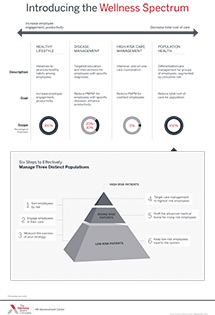Auto logout in seconds.
Continue LogoutFor decades, the so-called "marshmallow test" has been held up as proof that a child's self-control leads to success later in life—but a recent study published in the journal Psychological Science is turning that conventional wisdom on its head, Jessica McCrory Calarco writes for The Atlantic.
Study details
In a famous 1990 study, Stanford University psychologist Walter Mischel used marshmallows to test the willpower of young study participants. He placed a marshmallow in front of a child but told them that, if they waited 15 minutes before eating it, they could have a second marshmallow.
Mischel then tracked how the children fared later in life, and he concluded that children who had the self-control to delay their gratification performed better on standardized tests and other future measures of success.
But a new study from Tyler Watts, a researcher at New York University, along with Greg Duncan and Hoanan Quan, both researchers at UC Irvine, challenges that finding.
The researchers replicated the experiment with a significantly larger sample size that was more racially, ethnically, and educationally representative of the larger population. They found limited support for the idea that the ability to delay gratification was responsible for success later in life. Rather, the ability to wait for the second marshmallow was largely determined by a child's social and economic background—and that in turn correlated with future success, McCrory Calarco writes.
For instance, the researchers discovered that, among the children whose mothers had a college degree, those who waited for the second marshmallow had similar long-term outcomes to children who couldn't wait.
Their findings were similar for children whose mothers did not have a college degree. "For those kids, self-control alone couldn't overcome economic and social disadvantages," McCrory Calarco writes.
Discussion
These results suggest that children from disadvantaged backgrounds may simply be less motivated to wait for the second marshmallow than more affluent children, McCrory Calarco writes. "For [poorer children], daily life holds fewer guarantees: There might be food in the pantry today, but there might not be tomorrow, so there is a risk that comes with waiting."
For more affluent children, on the other hand, "experience tends to tell them that adults have the resources and financial stability to keep the pantry well stocked." As such, experience suggests that if they delay gratification, "things will all work out in the end—that even if they don't get the second marshmallow, they can probably count on their parents to take them out for ice cream instead," McCrory Calarco writes.
This explanation is bolstered by other studies too, McCrory Calarco writes. In a 2013 book by Harvard University economist Sendhil Mullainathan and Princeton University behavioral scientist Eldar Shafir, the authors wrote that poverty can lead people to prefer short-term rewards to long-term ones. "A second marshmallow seems irrelevant when a child has reason to believe that the first one might vanish," McCrory Calarco writes.
Similarly, research by McCrory Calarco and Brea Perry, both of whom are sociologists at Indiana University, found that low-income parents are more likely to give in to their kids' requests for sweet treats than affluent parents—suggesting that affluent parents may essentially train their children to wait.
"For poor children," McCrory Calarco writes, "indulging in a small bit of joy today can make life feel more bearable, especially when there's no guarantee of more joy tomorrow" (McCrory Calarco, The Atlantic, 6/1).
Upcoming webconference: Make sure you don't overlook the social determinants of health when managing patient data

Find out how to select, capture, and manage different data types, including patient-generated health data (PGHD), social determinants of health (SDH), and patient-reported outcome measures and explore how organizations can integrate new data types into population health management processes.
Make sure you don't miss out on our July 26th webconference.
Don't miss out on the latest Advisory Board insights
Create your free account to access 1 resource, including the latest research and webinars.
Want access without creating an account?
You have 1 free members-only resource remaining this month.
1 free members-only resources remaining
1 free members-only resources remaining
You've reached your limit of free insights
Become a member to access all of Advisory Board's resources, events, and experts
Never miss out on the latest innovative health care content tailored to you.
Benefits include:
You've reached your limit of free insights
Become a member to access all of Advisory Board's resources, events, and experts
Never miss out on the latest innovative health care content tailored to you.
Benefits include:
This content is available through your Curated Research partnership with Advisory Board. Click on ‘view this resource’ to read the full piece
Email ask@advisory.com to learn more
Click on ‘Become a Member’ to learn about the benefits of a Full-Access partnership with Advisory Board
Never miss out on the latest innovative health care content tailored to you.
Benefits Include:
This is for members only. Learn more.
Click on ‘Become a Member’ to learn about the benefits of a Full-Access partnership with Advisory Board
Never miss out on the latest innovative health care content tailored to you.

